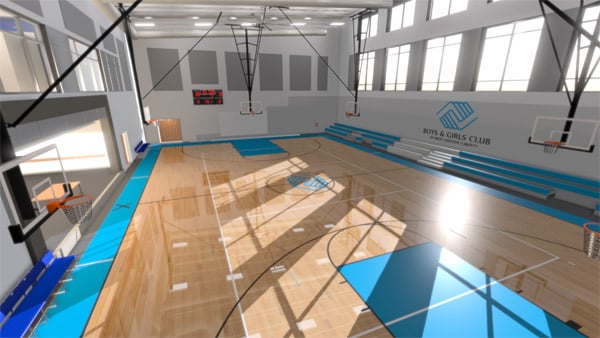6 Startups Futurizing Construction with VR and AR
Table of contents

Consumer adoption of virtual reality (VR) has been kind of like how sex was in high school. Everyone is talking about it but few people were actually doing it. Consumers just haven’t been as wowed as we were it comes to VR headsets. As a result, we’ve seen a price war of sorts break out with the two major VR headset providers in an attempt to spurt adoption. When it comes to commercial applications though, we’re seeing a great deal of innovation.
As we’ve written about before, virtual and augmented reality (VR, AR) technologies have become integral to the construction industry. Once confined solely to gaming, VR’s potential uses in other industries didn’t take long to become evident. The ability to examine and experience a project before executing it in real life is a huge boon to construction, an industry notorious for work stoppages and over-extended budgets—issues that arise when teams encounter problems not foreseen on blueprints or other flat models.
The chance to live in a project before spending months or years constructing it makes VR and AR technologies almost irresistible to architecture, engineering, and construction (AEC). From worker training and mapping and modeling to remote site visits and project planning, here are some of the up-and-comers making inroads in VR and AR for construction.
Tracking Real-World Progress Against Modeling

Paracosm initially built its mapping software for robotics, then transitioned to construction when they saw its vast potential, and built scanning hardware to match its software’s sophistication. The company is obviously impressing the industry with its technology: just last week, Paracosm was acquired by Occipital, a Boulder startup with $21 million in total funding. Occipital was featured in our article last year on 6 of the Hottest Virtual Reality Companies Out There.
Site Tours Without Being Onsite

Instant Floorplan
Canadian startup Sensopia has taken in $1.2 million in total funding since its 2010 founding and is the creator of Magicplan, an app that can automatically measure, draw, and publish a floor plan from pictures taken with any mobile device. Using AR technology, Magicplan also allows users to estimate material costs based on the generated floorplan and even order those materials from the app.

For construction companies – especially smaller ones – Magicplan enables them to plan, map out costs for materials and labor, and hand over an estimate on the spot to clients. The company has a varied customer target list, which includes Do It Yourself-ers (or DIY, a hugely popular trend in the US right now), realtors, AirBnB hosts, construction companies, and yes, even crime scene investigators. Such a scope of industry targets gives it a wide berth for profitability but could also potentially spread the company too thin. It will be interesting to watch how they evolve.
Do It Yourself VR Worlds
ShilpMIS Technologies, founded in 2016 in Gujarat, India has taken in an undisclosed amount of funding so far. While they may not have a name that rolls off the tongue, the work they’re doing in VR content creation is pretty slick. Builders of a platform that enables the creation of VR content without writing code, ShilpMIS is working to bring VR creation tools to the masses, labeling its software ‘intuitive,’ ‘drag and drop,’ and ‘democratized’. Its product, pptVR, lets users create content around locations, travel, events, or products. So a realtor, for example, can build an immersive walkthrough of a property, or a building contractor can easily capture a jobsite walkthrough to share with others. Content created can be published to the web and viewed on any device without the need for VR hardware. Given the newness of the company, the product is still in beta and there’s little information out there yet. But the ability for any of us to create little VR worlds seems awfully ripe for opportunity.
A Unified VR View


Construction site logistics with vehicle and worker simulations – planning that used to take weeks – can be created with just a few clicks. Fuzor cites multiple customers including contractors Brasfield & Gorrie, fellow VR innovator Arup, and architects Luckett & Farley, Carson Design, and more.
Solutions for the Enterprise

Conclusion
PwC’s Global Construction 2030 forecast predicts the industry growing from around $8.37 trillion to $15.5 trillion worldwide by 2030 with 57% of that growth is expected to come from China/USA/India. While these market forecasts should generally be taken with a grain of salt, the size of the construction industry as it is today presents an opportunity for technology startups to optimize an industry that has lots of money to spend on new technologies that reduce manpower costs and costly errors. Being able to visualize the finished product at various stages is a project manager’s dream, and we should expect to see more consolidation in this space as the winners bubble to the top.
Sign up to our newsletter to get more of our great research delivered straight to your inbox!
Nanalyze Weekly includes useful insights written by our team of underpaid MBAs, research on new disruptive technology stocks flying under the radar, and summaries of our recent research. Always 100% free.















